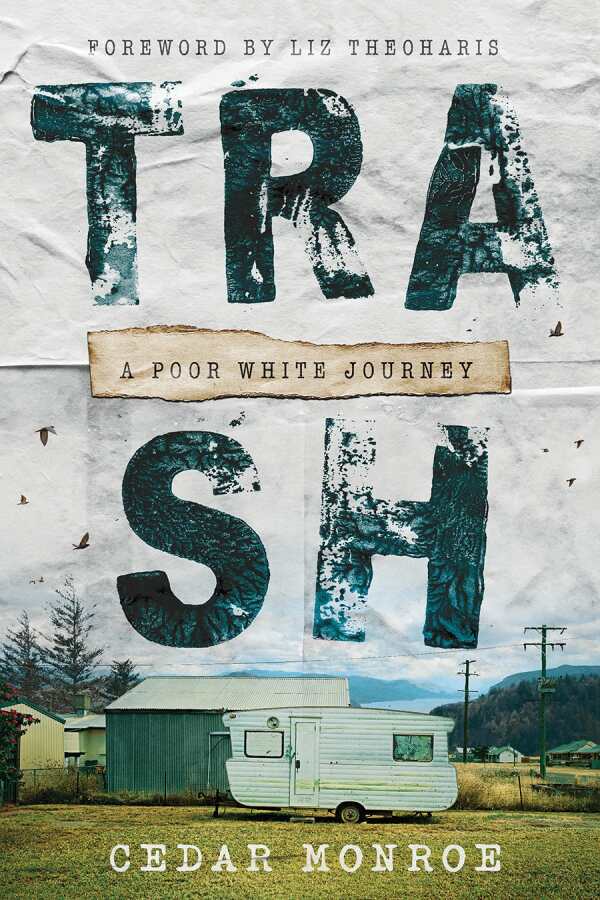Trash
A Poor White Journey
Interfaith chaplain Cedar Monroe’s Trash is a case study in the US’s rampant poverty problem.
Discussing poverty with particular emphasis on poor white Americans, Monroe’s book is focused on the homeless and housing-insecure individuals who formed community along the banks of the Chehalis River in Washington state: “Some people put up tents. Others lived in cars or RVs. Still others built … multiroom [shacks]. One couple … dug a cave into the embankment, shored it up with pallets, and then covered it with dirt and rotting leaves.” For myriad reasons, these people seem trapped in their difficult situations; their circumstances seem to self-perpetuate. Further, the residents face constant threats from within and without, all centered around their perceived lack of social value. And though they are called “white trash, rednecks, poor whites, or crackers” by outsiders, Monroe argues that no human being is trash.
Drawing upon Monroe’s personal experiences—in their ministry work, they interacted with the river community—the book twines its memoir elements with stories from the community members themselves, who forged “a path through intense hardship, holding on to courage and hope, even when the world abandoned them to their fate.” They are seen dealing with desperation, neglect, crime, and racism. Monroe suggests that their plight is a microcosm of what poor white people face in the US today. Indeed, their narratives are supplemented with historical and sociological data covering centuries of ingrained problems—information that is used to suggest that effective change must come from the bottom up. It’s a message delivered with eloquence, intensity, and urgency throughout.
A sociological case study, Trash addresses the “full-blown crisis” of American homelessness by zooming in on one such community.
Reviewed by
John M. Murray
Disclosure: This article is not an endorsement, but a review. The publisher of this book provided free copies of the book to have their book reviewed by a professional reviewer. No fee was paid by the publisher for this review. Foreword Reviews only recommends books that we love. Foreword Magazine, Inc. is disclosing this in accordance with the Federal Trade Commission’s 16 CFR, Part 255.

